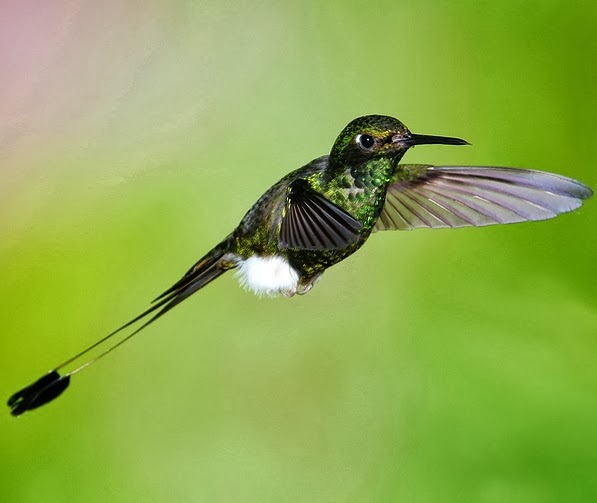 |
| Photo by Larry Thompson (Discover Life) |
Common name:
booted racket-tail (en); beija-flor-de-raquetes (pt); haut-de-chausses à palettes (fr); colibrí de raquetas (es); flaggensylphe (de)
Taxonomy:
Order Apodiformes
Family Trochilidae
Range:
This species is found along the slopes of the Andes from Venezuela south to Bolivia.
Size:
The females are 7,5-9 cm long, while the males are 12-15 cm long due to the two long tail feather than can grow to 7,5 cm. They weigh 2,6-3,2 g.
Habitat:
The booted racket-tail is mostly found in mountain rainforests, but also use rainforests in lowland areas and open second growths. They can be found at altitudes of 600-4.000 m.
Diet:
They feed mainly on nectar from red tubular flowers of several plant species, but also take insects and small spiders.
Breeding:
Booted racket-tails can breed all year round, varying between different parts of their range. The female builds the nest, a tiny cup made of plant fibres and lichens, bound together with spider webs. The nest is lined with softer plant fibres and animal hair and down. It is placed on an horizontal twigs in a tree, 6-8 m above the ground.There she lays 2 white eggs, which she incubates alone for 16-17 days. The chicks are fed by the female and fledge 19-22 days after hatching.
Conservation:
IUCN status -LC (Least Concern)
This species has a large breeding range and is described as fairly common. The population is suspected to be stable in the absence of evidence for any declines or substantial threats.







